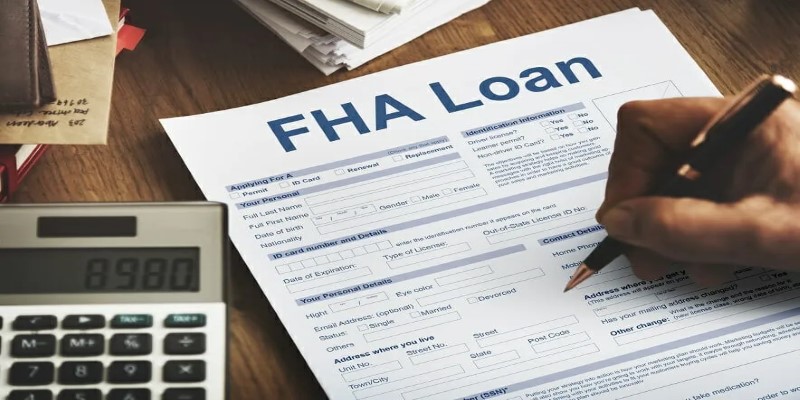FHA loans and Mortgage Insurance: What Every Buyer Needs to Know
Buying a home is a big financial decision, and for many people, navigating the mortgage process can be challenging. For those who don't have a large down payment or perfect credit, FHA loans have become a popular option. These loans, insured by the Federal Housing Administration (FHA), make homeownership more accessible. However, they come with a key requirement-FHA mortgage insurance. This insurance adds a layer of protection for lenders, allowing them to offer loans with lower down payments and less stringent credit requirements. In this article, we will dive into what FHA mortgage insurance is, how it works, how long you need to pay it, and who benefits most from FHA loans.

What Is FHA Mortgage Insurance?
FHA mortgage insurance is a requirement for all FHA loans, designed to protect lenders in case a borrower defaults on their loan. Although the FHA does not provide loans directly, it does guarantee a portion of the loan amount for the lender. This insurance lowers the risk for lenders, encouraging them to approve loans for homebuyers who may not meet the requirements for conventional loans because of lower credit scores or smaller down payments.
Essentially, FHA mortgage insurance allows more people to qualify for home loans by giving lenders the confidence to approve higher-risk borrowers. However, it also involves additional expenses since the borrower must cover the insurance premiums. These premiums are typically included in the borrower's monthly mortgage payment and are a key part of making FHA loans accessible to a wider range of homebuyers.
How FHA Mortgage Insurance Works
FHA mortgage insurance consists of two components: an upfront mortgage insurance premium (UFMIP) and a recurring annual mortgage insurance premium (MIP). The borrower pays both of these, which are critical parts of the FHA loan structure.
Upfront Mortgage Insurance Premium (UFMIP)
This is a one-time fee paid at the beginning of the loan. As of 2024, the standard UFMIP is 1.75% of the loan amount. For example, if you borrow $200,000, your upfront premium would be $3,500. You can pay this fee in full at closing or choose to roll it into your loan amount, although doing so will increase your loan balance and the interest you pay over time.
Annual Mortgage Insurance Premium (MIP)
Along with the upfront premium, FHA borrowers are also required to pay an annual mortgage insurance premium. This amount is broken down into monthly installments and included in the borrower's mortgage payment. The MIP amount varies based on the loan amount, loan term, and loan-to-value (LTV) ratio. Typically, it ranges from 0.45% to 1.05% of the loan amount. For instance, on a $200,000 loan, this could range between $900 and $2,100 per year, spread across monthly payments.
Together, these premiums are what make FHA loans possible for many homebuyers, although they do add to the overall cost of the loan.
How Long Do You Have to Pay FHA Mortgage Insurance?
The duration for which you are required to pay FHA mortgage insurance premiums depends on various factors, including the particular terms of your loan and the amount of your down payment. If you choose to make a down payment of less than 10%, you will be required to pay the mortgage insurance premium for the entire duration of the loan. This means that unless you refinance into a non-FHA loan at some point, you will continue to pay for FHA mortgage insurance until the loan is completely repaid, which can add up to a significant amount over time.
On the other hand, if you are able to make a down payment of 10% or more, the rules change in your favor. In this case, you will only need to pay the mortgage insurance premium for the first 11 years of the loan. This adjustment was made in 2013 to address concerns about the long-term costs associated with mortgage insurance, providing some relief to borrowers. Before this change, FHA borrowers could cancel the mortgage insurance once they achieved 22% equity in their home. Understanding these timelines is crucial for planning your finances effectively and knowing what to expect with your FHA loan.
Who Benefits Most from FHA Loans?
FHA loans, and by extension, FHA mortgage insurance, are best suited for specific groups of homebuyers. The primary beneficiaries are those who might struggle to meet the stricter requirements of conventional loans. These include:
First-time homebuyers: FHA loans are especially attractive to first-time homebuyers who may lack substantial savings for a down payment or have a lower credit score. The lower credit requirements and flexible down payment options make it easier for them to purchase a home.

Buyers with low credit scores: FHA loans have more flexible credit score requirements. Unlike conventional loans, which usually need higher credit scores, FHA loans are accessible to borrowers with scores as low as 580 and sometimes even lower.
Individuals with limited savings: FHA loans allow for down payments as low as 3.5%, making them a good choice for buyers who dont have enough savings for the 20% down payment that conventional loans may require to avoid private mortgage insurance (PMI).

While the added cost of FHA mortgage insurance is a downside, the opportunity to own a home often outweighs these additional expenses for these buyers.
Conclusion
FHA mortgage insurance is crucial in making homeownership attainable for a diverse group of buyers. By providing insurance to lenders, the FHA allows borrowers with lower credit scores and smaller down payments to secure a mortgage. While the insurance does add to the cost of an FHA loan, for many people, it's a trade-off that opens the door to homeownership.
If you're considering an FHA loan, understanding how FHA mortgage insurance works and how long you'll be required to pay it is crucial for making an informed decision. Ultimately, for many first-time buyers or those with limited savings, the benefits of FHA loans far outweigh the extra costs associated with mortgage insurance.












